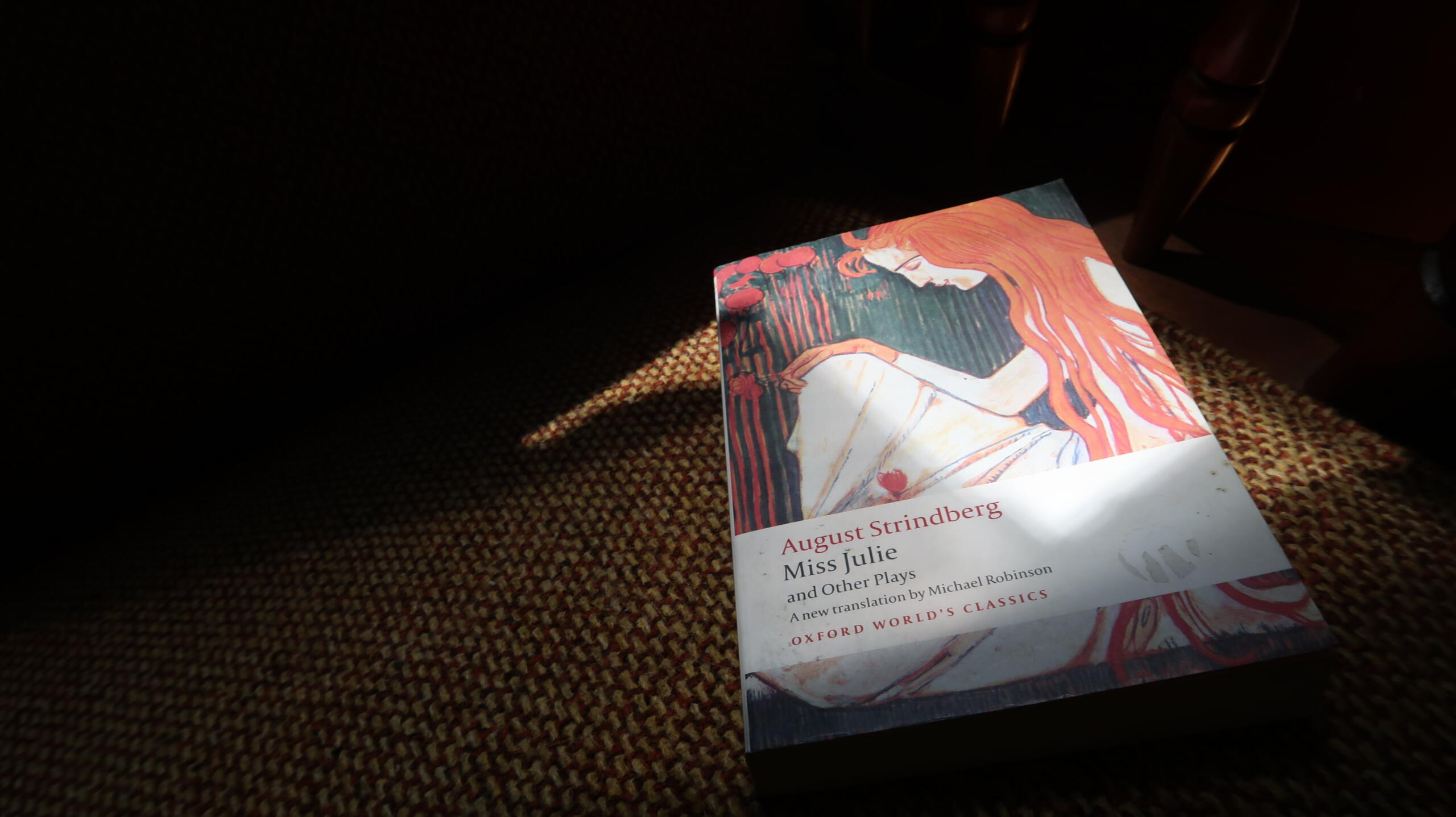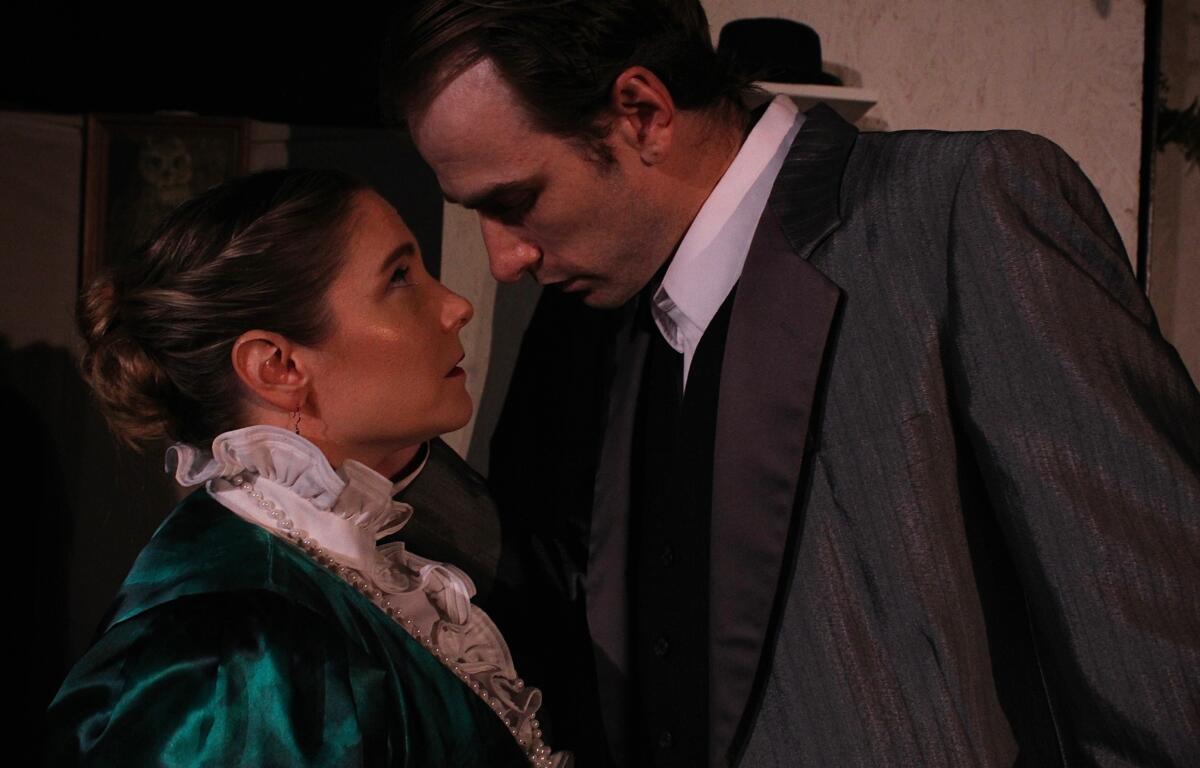ASHEVILLE, N.C. (828newsNOW) — “Miss Julie” is a classic 19th century romantic drama written by the Swedish playwright August Strindberg. This September, the world-premiere of a brand-new adaptation will be staged at the Attic Salt Theatre Company.
The Attic Salt production of “Miss Julie” is directed and adapted by Jeff Catanese and will run at 7:30 p.m. on Fridays and Saturdays and 2:30 p.m. on Sundays, Sept. 5-21, Attic Salt Theatre Arts Space, 2002 Riverside Dr.
The show stars Gabby Bailey as Kristen, Jon Robinson as John and Lauren Otis as Miss Julie. For the full program, visit www.atticsalt.org/miss-julie-program.
Find tickets here.
“Miss Julie” review
“Miss Julie” is an intimate play. Featuring only three characters and confined to a single set, the drama is formally limited in scope, dispensing with scene changes and an ensemble cast in favor of a microscopic examination of a messy psuedo-love story. The show is oriented around a lengthy conversation between the titular Miss Julie, the wily, flirtatious mistress of a wealthy estate, and John, her father’s ambitious, manipulative manservant. The two are like beautiful, writhing vipers in a pit of quicksand: every line of dialogue is a venomous barb and every exchange is an attempt to keep the higher ground, though both inevitably sink to tragedy.
Robinson and Otis excel at communicating the minute, whether it be an arched eyebrow of the vulpine, impish Otis or the dismissive shrug of a lanky, draconic Robinson. The dimensions of the Attic Salt Arts Space – seats are mere feet away from the set, arranged on level ground with the audience – invited close examination of the actors, a harrowing ask for performers of a medium which typically swallows an audience in dissociative shadow. They delivered. I found myself so captivated by Robinson and Otis’s casual transformations into John and Julie that the play’s bigger, more emotional moments nearly felt out of place, a reminder that these were actors acting, not a nightmarish dinner date on which I was eavesdropping.

That feeling – “Miss Julie” as a bad date, more akin to a scripted reality show than a staged chamber drama – was only enhanced by Catanese’s gently tweaked script. While the Catanese adaptation was largely faithful to Strindberg’s original conception, costumed in beautifully-designed period dress by McKinney Gough and set on a stage, designed by Falluja Rain and Mikhale Sherrill, ripped right out of the 1880s, Catanese made small changes here and there, like granting the more antiquated lines a contemporary gloss. In combination with the utterly modern performances by Otis and Robinson, it was hard to believe the play was written in 1888.
Then again, perhaps its evergreen themes are the very reason Strindberg’s play has endured for so long. One exchange between John and Julie – a tip of the power scale in favor of John, for those keeping score – was eerily, effortlessly evocative of the post-coital ambivalence of modern Lotharios. The show has a progressive handle on the frustrating strictures of patriarchal society. Julie is simultaneously railing against and banging her head on the ludicrousness of slut-shaming and restrictive inheritance, while John, for all of his swagger and capitalist drive, is forever deferential to his master, the literal and proverbial “man upstairs.” Though their characters suffer, Otis and Robinson communicated agony with ease.

Other small touches that made the Attic Salt show transporting included the sound design by Roger Bindy, which turned kitchen conversations into interludes ever at risk of intrusion from a nearby party, and Bailey, who gave a warm, weary performance as Kristen in a nearly thankless but nonetheless vital role.
Walking out of Attic Salt at the end of “Miss Julie” might have felt like time travel, if not for the fact that what I witnessed onstage was unquestionably theatre of today.


